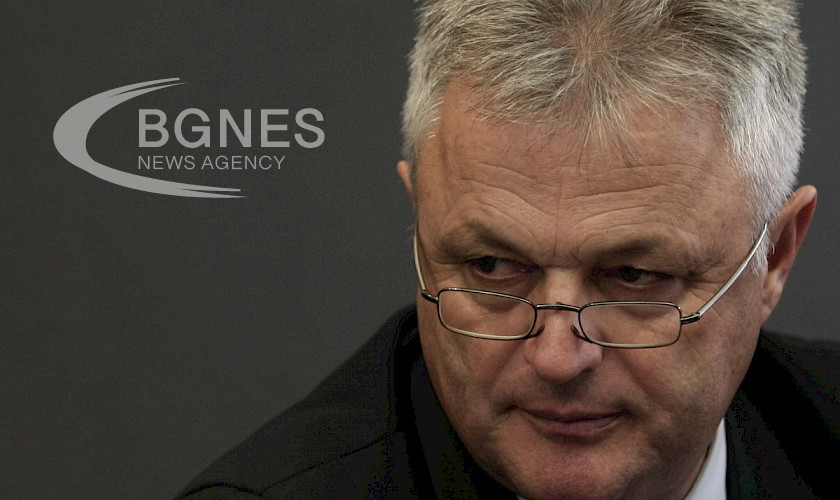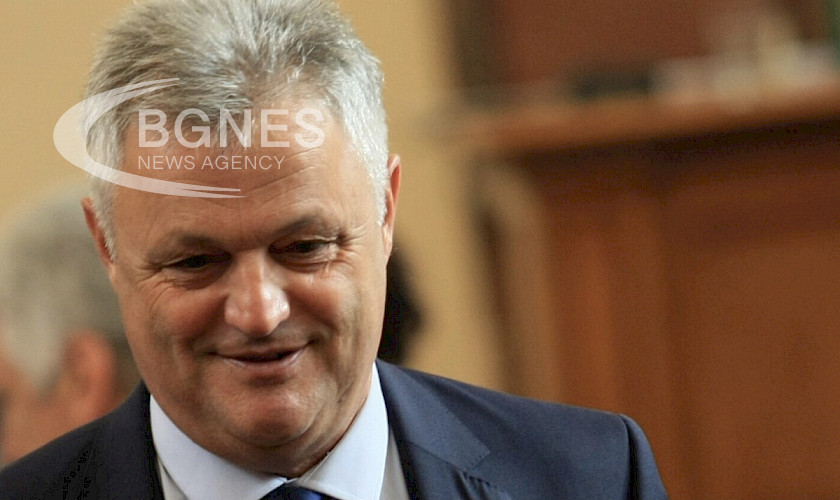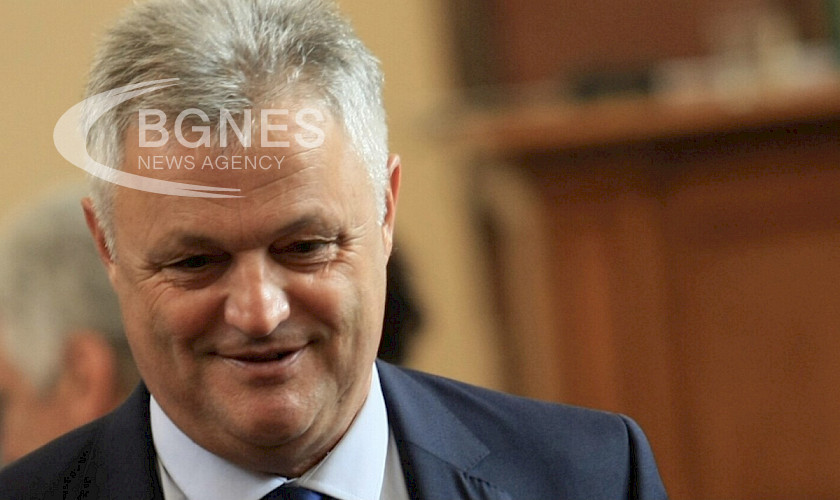Vice Admiral Manushev: Myths and Facts about Sofia-Skopje Relations
There seems to be a plethora of untrue statements and disinformation surrounding the issue between Bulgaria and the Republic of North Macedonia. Therefore, it might be necessary to separate the myth from the fact. The underlying fact is that there are two neighboring countries, one is an EU Member State and the other is a candidate. They are signatories to a Treaty of Friendship, Good Neighborly Relations, and Cooperation, which forms the basis of their relations.

A short period after signing this Treaty, the candidate has made a choice that, in reality, it will not respect it, thus calling into serious question its willingness to break with the legacy of its past. As a result, the Member State announced that it will not pave the way to European legitimization of non-compliance with treaties before, during, or after the start of negotiations of the candidate country to the EU. It outlined specific and transparent steps to be addressed, based on the provisions of the Treaty. Rather than returning to implementation of the Treaty, the candidate calculated that taking a shortcut by carrying a smear campaign against the Member State will be a more productive endeavor. The math behind this calculation was obviously that the Member State will be coerced to accept the fact of non-compliance, while the candidate will be spared from addressing implementation of the Treaty.
Faced with this reality and the Treaty being highlighted as keystone in EU documents, the Member State sought existing EU enlargement practices to provide legal guarantees for Treaty compliance within the negotiating framework of the candidate. Had the Member State’s concerns been reflected in the negotiating framework, the document would have been already adopted. The purpose of such guarantees is to overcome the candidates systemic reluctance and track record of non-compliance with agreements, to permanently lay to rest any still continuing historical, linguistic, minority and other unfound claims based on misinterpretations of history, and importantly - to decidedly stimulate tangible investment in the relations between future partners in the European family.
Bulgaria’s concern is that despite the Treaty, there is continuing national doctrine of anti-Bulgarian Macedonism still taught in schools. This doctrine incites hatred towards Bulgaria and it serves as the basis for claiming alleged Macedonian minority in Bulgaria. This is carried via exploitation of clear historic falsifications, in the same vain that it was done with Greece’s antiquity, and denial by RNM of the Bulgarian foundations of its language. The concern is further aggravated by Skopje’s consistent deviation from the use of the agreed language clause in the Treaty, and by refusal to confirm by a verbal note to the UN that the short name of the country-North Macedonia refers only to the political entity, and not to the geographic region of North Macedonia. The geographic region of North Macedonia includes also a part of sovereign Bulgarian territory. Thus, RNM has missed the opportunity to dispel any worry of its challenging Bulgaria’s national unity and sovereignty. Bulgaria cannot be expected to engage in a process of revisionism of its own history just to enable the identity-building process in Skopje. We can hardly be pressured into accepting challenges to our national unity.
From Bulgaria’s perspective it is an imperative to finally see a lasting, permanent and irreversible solution to our concerns, rather than be served with yet another quick fix that certain actors may reckon will do the job. My response, the response of this and likely any next Bulgarian government, institutions, but also the response of the Bulgarian people is unequivocal. It is that our relationship with the Republic of North Macedonia must undergo a qualitative change whose expected nature, in a truly European manner, has already been expressed and agreed within the Treaty of Friendship, Good Neighborly Relations, and Cooperation.

The myth that Bulgaria will somehow give up its interest, either after its elections, or as a result of outside pressure, manipulative negative international campaigns, and irrational reactions is actually yet another attempt to run away from responsibility. Being guided by the belief that someone else, outside of RNM, is entitled or compelled to do what in reality only RNM can do is a very big part of the problem. Bulgaria’s concerns were already present in the early fall of 2019 when the government adopted its framework position on accession of RNM and our National Assembly voted a declaration supporting it by majority. The purpose of this framework position was to voice in a very transparent manner that there is a problem with the respect of the Treaty and what it is, guided by the Treaty, that we will look for in the process of accession. In the early fall of 2019 few expected that the decision of the Council giving green light for accession talks will be postponed till March 2020, and yet elections in Bulgaria were still planned to take place in spring 2021. So, explaining Bulgaria’s position, dating from the fall of 2019, with the upcoming elections in 2021 and alleged political calculations, is just not serious. Rather, it begs the question what has been done by RNM in all this time to address these concerns. The answer is quite unsatisfactory.
It is important to underline that Bulgaria’s position is a fact because our concerns are of strategic, fundamental nature, not only for Bulgaria’s own interest as a state, but also for that of the EU as a community. These concerns are the result of our comprehensive experience in this bilateral relationship. It has forced us to question the degree to which RNM acknowledges that the EU family is such because we value loyal partnerships and respect agreements. Bulgaria, as is the EU, is a staunch supporter of the rules-based international order. So having a candidate country neglect a Treaty with a Member State, of such central value for this relationship, is simply unacceptable. We have a solemn responsibility as a Member State to work towards preserving the security, stability, values, and functioning of the EU. That means that we cannot afford to light-handedly disregard an existing open issue of such gravity and allow it to be imported within the Union. There is a consensus in this country that such an irresponsible and short-sighted policy will undoubtedly undermine and add to the challenges of the European project, because negotiations and accession of new member states ultimately have long-term consequences.
I share the view that candidates become such because there is an aspiration from within their society and leaders to undertake fundamental changes on the European path, as we all have done, because this is the transforming vision they have for their country’s future. The perception that start of negotiations and membership are some final prize to be won only by overcoming requirements of the candidate’s own preference is an idea that could raise doubts on the credibility of the process. And in the case with RNM we are talking about a choice whether to have friendly, good-unneighborly relations and to cooperate with a neighboring Member State, a future partner in the EU.

Yet, I must say there’s hardly a country that wishes more strongly and has made continuous steps to see the Republic of North Macedonia become a member of the EU than Bulgaria. In response, the past thirty or so years of our neighbor being an independent, sovereign state, unfortunately we have witnessed a definite trend of violation, reluctance and obfuscation to implement agreements. To give more context, a declaration, which is also the basis of the current Treaty, was signed in 1999 and it was quickly disregarded by the next government. It took well over a decade of very complex and at times obstructed negotiations to conclude the Treaty, which we all celebrated as an achievement also in numerous EU documents and Council Conclusions. Respect for this Treaty, to refer to the accession methodology, is, and always has been, a prerequisite for Bulgaria to have confidence in the credibility of this process for RNM, confidence that the candidate is addressing the legacy of its past, which has produced complicated relations with Bulgaria. To me, very unfortunately, it seems our neighbor signed the Treaty just as a showpiece, with the clear intention that once signed they will zig-zag their way around the obligation to respect its word and spirit.
As per the question on infrastructure, Sofia and Skopje continue to be the only two neighboring capitals in Europe that are not connected via railway despite numerous long-time political statements from RNM and promises that such a project is of prime importance. Roads are also in a dire state. The construction of Corridor 8 is being purposefully impeded, which leads to the loss of EU funding. Connectivity is crucial for our economies, for our people-to-people contacts, but also because Bulgaria and RNM are part of NATO and this has also to do with the security of the Alliance. Part of non-compliance with the Treaty is that there are no tangible results overcoming this lack of connectivity. Furthermore, there still exist practices of additional administrative and extra-institutional hurdles for Bulgarian businesses and strategic investments in RNM. So, there are issues with the Treaty beyond those of the Joint Multidisciplinary Expert Commission for Historical and Education Issues which have captured media attention, that are just as worrying and fall into the overall lack of trust that RNM has genuine intentions to live up to what they have promised to do in a Treaty.
Bulgaria is not in a hurry. If these issues require time, we are prepared to have the patience before we can proceed with the accession process. Negotiations will continue under one of the upcoming presidencies, once emotions in Skopje have settled down and our neighbors are ready to address our concerns. I really hope that RNM finds the courage and leadership to make this step towards its European future, and I am sure they will always find a trusted partner in Bulgaria. /BGNES
-----
Vice Admiral Plamen Manushev, Chairman of the Parliamentary Committee of Foreign Policy.




